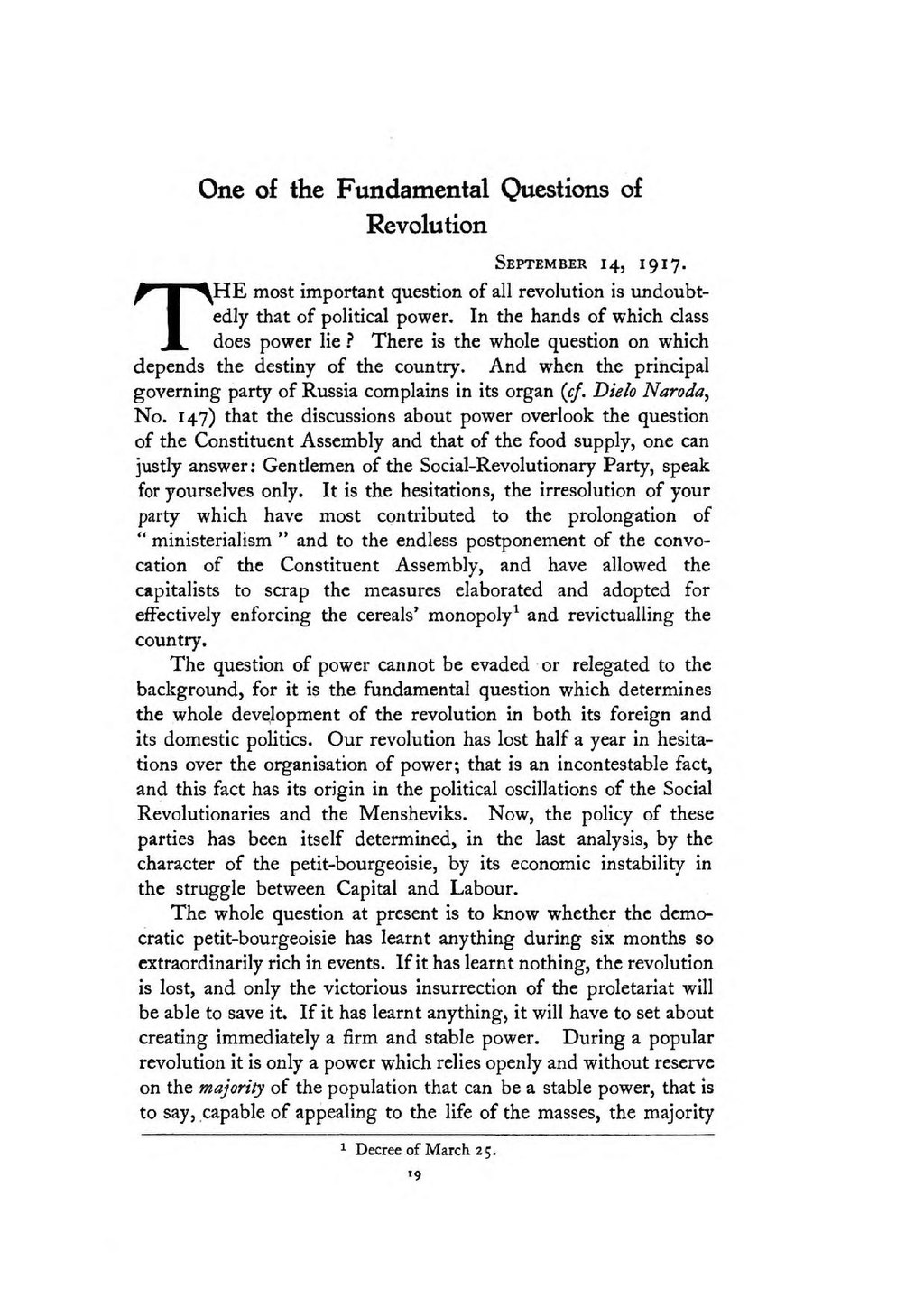One of the Fundamental Questions of
Revolution
THE most important question of all revolution is undoubtedly that of political power. In the hands of which class does power lie? There is the whole question on which depends the destiny of the country. And when the principal governing party of Russia complains in its organ (cf. Dielo Naroda, No. 147) that the discussions about power overlook the question of the Constituent Assembly and that of the food supply, one can justly answer: Gentlemen of the Social-Revolutionary Party, speak for yourselves only. It is the hesitations, the irresolution of your party which have most contributed to the prolongation of "ministerialism" and to the endless postponement of the convocation of the Constituent Assembly, and have allowed the capitalists to scrap the measures elaborated and adopted for effectively enforcing the cereals' monopoly[1] and revictualling the country.
The question of power cannot be evaded or relegated to the background, for it is the fundamental question which determines the whole development of the revolution in both its foreign and its domestic politics. Our revolution has lost half a year in hesitations over the organisation of power; that is an incontestable fact, and this fact has its origin in the political oscillations of the Social Revolutionaries and the Mensheviks. Now, the policy of these parties has been itself determined, in the last analysis, by the character of the petit-bourgeoisie, by its economic instability in the struggle between Capital and Labour.
The whole question at present is to know whether the democratic petit-bourgeoisie has learnt anything during six months so extraordinarily rich in events. If it has learnt nothing, the revolution is lost, and only the victorious insurrection of the proletariat will be able to save it. If it has learnt anything, it will have to set about creating immediately a firm and stable power. During a popular revolution it is only a power which relies openly and without reserve on the majority of the population that can be a stable power, that is to say, capable of appealing to the life of the masses, the majority
- ↑ Decree of March 25.
19
